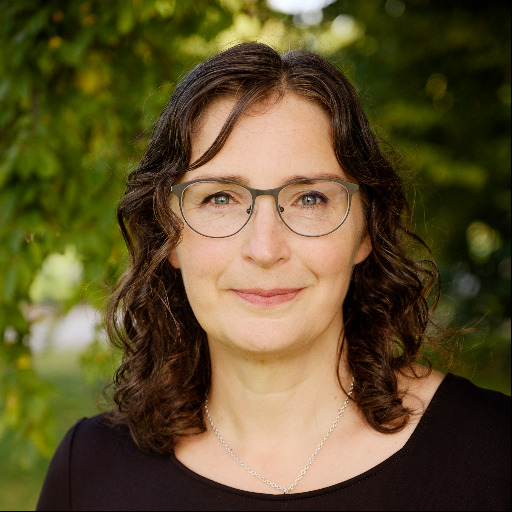We use cookies on this website. Cookies help us deliver the best experience on our website. Read about cookies.
-
- Education
- Education
- Programmes and courses
- Applications and admissions
- Tuition fees
- Scholarships
- Exchange studies at Malmö University
- Study Guidance
-
- After admission
- After admission
- Moving to Malmö
- Pre-orientation
- Arrival guide
-
- About studies at Malmö University
- About studies at Malmö University
- Why choose Malmö University
- Understanding university studies
- Connect with our students
On the page -
- Research
- Research
-
- Doctoral studies
- Doctoral studies
- Doctoral courses
-
- Doctoral schools
- Doctoral schools
- Doctoral school: Education, Learning and Globalisation
- Doctoral school: The National Research School for Professionals in Social Services
- Doctoral school: Learning in Multicultural Societal Contexts
- Doctoral school: ComBine
- Doctoral school: Swedish National Graduate School in Science and Technology Education Research
- Doctoral school: Relevancing Mathematics and Science Education (RelMaS)
- Doctoral school: Sustainable Movement Education
- Doctoral school: Finding ways in a time of great future challenges (FinnFram)
- Doctoral school: Pedagogy and Vocational Skills
- Doctoral school: Culturally Empowering Education through Language and Literature
- Research subjects
-
- Research centres
- Research centres
- Biofilms Research Centre for Biointerfaces
- Citizen Health
- Imagining and Co-Creating Futures
- Institute for Urban Research
- Malmö Institute for Migration Studies
- Literacy and Inclusive Teaching
- Centre for Work Life Studies
- Sustainable Digitalisation Research Centre
- Centre for Sexology and Sexuality Studies
-
- Research publications
- Research publications
- Search publications
- Malmö University Press
- Research events
- Participate in a research study
- Coffee Break Quiz
On the page -
- Collaboration and Innovation
- Collaboration and Innovation
- Innovation
- Collaboration with students
-
- Collaborate with researchers
- Collaborate with researchers
- Labs and facilities
- Culture collaboration
- Support Malmö University
- Alumni & Friends
On the page -
- About us
- About us
-
- Faculties and departments
- Faculties and departments
-
- Faculty of Culture and Society
- Faculty of Culture and Society
- Department of Urban Studies
- Department of Global Political Studies
- School of Arts and Communication
-
- Faculty of Education and Society
- Faculty of Education and Society
- Department of Childhood, Education and Society
- Department of Sports Sciences
- Department of Natural Science, Mathematics and Society
- Department of School Development and Leadership
- Department of Culture, Languages and Media
- Department of Society, Culture and Identity
-
- Faculty of Technology and Society
- Faculty of Technology and Society
- Department of Computer Science and Media Technology
- Department of Materials Science and Applied Mathematics
-
- Faculty of Odontology
- Faculty of Odontology
- Master's programmes in Dental Science
- University Dental Clinic
- Management and decision-making paths
-
- Vision, objectives and strategy 2025
- Vision, objectives and strategy 2025
- Global engagement
- Sustainability
- Widened recruitment and participation
- Quality assurance work at the University
-
- Malmö Academic Choir and Orchestra
- Malmö Academic Choir and Orchestra
- Student work – video pieces
-
- Annual Academic Celebration
- Annual Academic Celebration
- Academic traditions
- Meet our new professors
- The University in a troubled world
On the page

Astrid
Hedin
Associate Professor/Senior lecturer
astrid.hedin@mau.se
+46 40 665 81 62
orcid.org/0000-0002-8498-6529
Presentation
Astrid Hedin is associate professor of political science and public administration at the Department of Global Political Studies (GPS), Malmö University. In 2021/22, during the pandemic, she was an online visiting scholar of the The Davis Center for Russian and Eurasian Studies at Harvard University and a Sabbatical Scholar of Riksbankens Jubileumsfond (RJ). During spring 2024, she returned to be on site. She is also an active alumni of the Scandinavian Consortium for Organizational Rsearch (Scancor) and its' two centers on the campuses of Stanford and Harvard University.
Astrid Hedin researches communist state administrative structures (see the Oxford Research Encyclopedia of Public Administration, 2022) and specifically the travel controls for employees. These were used to influence perceptions and narratives in the West, and constituted a state capacity in the everyday cold war struggle over discourse and narrative. (See ‘Illiberal deliberation’, Cooperation & conflict, 54:2).
Astrid Hedin has also studied how leftist trends during the 1960s and 1970s impacted on the Swedish model and how it was re-negotiated, re-interpreted and perceived, both at home and abroad (‘Origins and Myths of the Swedish Model’ 2016; ‘Before the Breakdown’ 2019).
Drawing on the Stanford school of World Polity Studies, Astrid Hedin has suggested a framework for how to investigate how the communist example helped propel and shape global policy trends during the Cold war era (‘Cold war isomorphism’ 2016, 2018, 'Global nyinstitutionalism', 2022).
Blog posts summarizing research articles
Lagging Impact: New Research on Communism Needs to Reach Textbooks on Insights, the online publication of the Davis Center for Russian and Eurasian Studies, Harvard University.
How communist regimes directed global dialogue Blog post on the global, blog of the Geneva Global Governance Centre.
How did the Cold war help spur West European welfare state reform? Blog post on the global, blog of the Geneva Global Governance Centre.
Lessons from East Germany How authoritarian states can use international travelers to promote their interests. Blog post on EUROPP blog of The London School of Economics.
Service
At Malmö University, Hedin is a faculty representative and elected vice chair of the Faculty Board of Culture & Society. She is the coordinator for the Political Science program within the Department of Global Political Studies (GPS). Earlier, she has been an acting coordinator of the GPS research seminar.
Training and experience
- Member of the Scientific Advisory Board of Sida, the Swedish International Development Agency, 2023-2024, appointed by the Government
- Visiting scholar at the Davis Center for Russian and Eurasian Studies, Harvard University, online 2021/22, on site spring 2024
- Subject coordinator for political science 2012-2016, 2019-ongoing
- Temporary senior lecturer, Lund University, 2016-2018
- Acting GPS research coordinator, autumn 2015
- Anna Lindh fellow of the Europe Center, Stanford University, spring 2012
- Docent/Habilitation/ associate professor in political science, Uppsala University
- Visiting scholar at the Center for Russian, East European and Eurasian Studies (Creees) and the Hoover Institution Archives, Stanford University
- Visiting scholar at the Scandinavian Center for Organizational Research (Scancor), Stanford University
- Post-doctoral fellow of the Swedish Research Council
- Ph.D. in political science, Lund University
Current teaching
- Decision Making in Foreign Policy (Political science Master program)
- Organization Theory (Political science)
- Swedish Politics and Public Administration (Political science)
- Qualitative Methods (Public Administration program)
- Globalization and the Welfare State (Public Administration program)
- International Organizations as Public Administration (Public Administration program)
- The Power of International Organizations (GPSC-Master program)
- Swedish politics and democracy (Police Officer training program)
- The Swedish Institute Summer Academy for Young Professionals (SAYP)
Publications
-
2024 | Chapter in book
Citizenship and workplace democracy
Astrid Hedin
-
2023 | Chapter in book
Le modèle suédois comme arbitre entre l’Est et l’Ouest pendant la guerre froide: L’exemple de la réforme de la démokratie sur le lieu de travail
Astrid Hedin
-
2023 | Article, book review
Book review: Jonsson, Oscar, 2023. Hotet från Ryssland. Stockholm: Mondial.
Astrid Hedin
-
2022 | Chapter in book
Global nyinstitutionalism
Astrid Hedin
-
2022 | Article, review/survey
Re-assessing the Soviet Impact on Western Welfare States
Astrid Hedin
